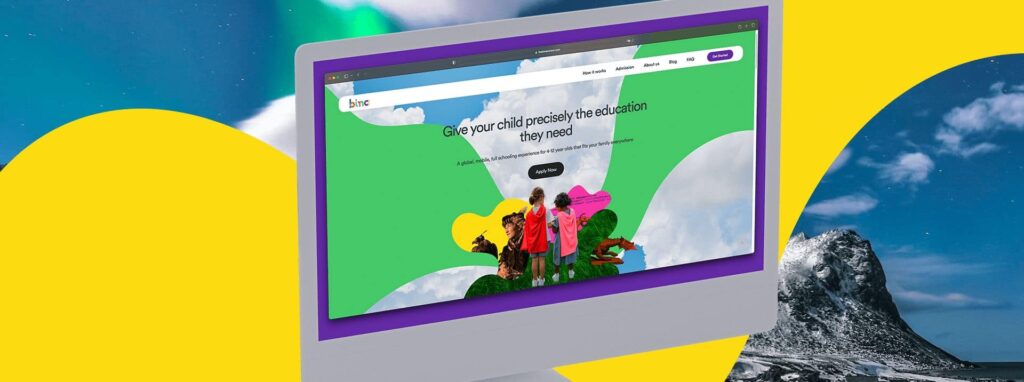There’s an overwhelming number of online programs available – how do you choose which one is the best for your child? The first step is understanding the major differences between the different types of programs.
Full-time online school with live sessions:
- Your child learns about all subjects (math, reading, science, art, etc.)
- Classes are live; students and teachers meet online at the same time. Plenty of opportunities for socialisation and collaboration.
- Class sizes can vary; students receive more individualised attention in smaller classes like the ones featured at bina.
- Feedback is provided in a variety of ways, including through live conversation and observation.
- Tasks and activities are often completed during class time.
- Examples include bina, Harrow School Online, and Sora Schools.
Part-time online schools with live sessions
- Students receive instruction in a selected subject area.
- Classes are a supplement to a full curriculum; the responsibility for child’s broader education lies with parents. These schools are often not accredited.
- Flexibility in schedule, broad range of subjects.
- Often lacking opportunities for regular socialisation with peers.
- Examples include Outschool, CalColor, and 6Crickets.
Some schools offer full-time programs with recorded lessons. Often, class sizes are large, which means that teachers aren’t able to give as much individualised approach and students aren’t given the opportunity to socialise and collaborate. Then, of course, there are educational apps that offer opportunities to practice skills and build knowledge, but they’re not a replacement for school. Examples of popular educational apps include BrainPOP, KhanAcademy and DragonBox.
Not that we’ve covered the basics of what’s out there, it’s time to narrow down your options. Here are some questions to consider when deciding on an online schooling program for your child:
- Do we want a full schooling program, or are we looking for more of a supplement to our child’s already-existing curriculum?
- Are the teachers qualified and experienced?
- How is grading one? What type of feedback will my child receive? What matters to us in terms of feedback and how is it communicated?
- What are the class sizes? How much attention will my child get from their teacher?
- What does a sample daily schedule look like? Will that work for my lifestyle?
- What opportunities are offered for socialisation? Is there a focus on social-emotional learning in this program?
- Other than reliable internet and a device to access the courses, what other materials will we need to purchase?
The best online school program for your child depends on their learning style, individual needs, age, and overall disposition (as well as your family’s particular circumstances). There’s no one-size-fits-all answer to the question of which online school program is best – but understanding the differences and knowing what to look for will help you arrive at a decision that suits your child and your family as a whole.
